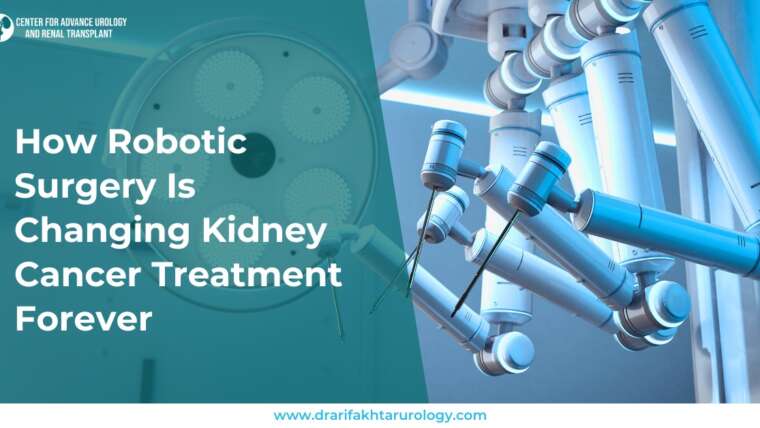Living with Prostate cancer can be a challenging journey, both physically and emotionally. However, with the right coping strategies and quality of life enhancements, individuals can navigate through the experience with resilience and a focus on overall well-being. In this article, we will explore various approaches to coping with prostate’s cancer, emphasizing the importance of support, self-care, and treatment options such as prostate’s cancer surgery.
Understanding Prostate Cancer
Prostate’s cancer is a type of cancer that affects the prostate gland, a small walnut-shaped organ in men that produces seminal fluid. It is one of the most common cancers among men, but with early detection and advances in medical technology, treatment outcomes have significantly improved.
The Role of Prostate Cancer Surgery
Prostate’s cancer surgery, also known as a prostatectomy, is one of the primary treatment options for localized prostate cancer. It involves the removal of the prostate gland and, in some cases, nearby tissues or lymph nodes. Prostate cancer surgery aims to remove the cancerous cells and potentially cure the disease. It can be performed using various techniques, including open surgery, laparoscopic surgery, or robot-assisted surgery.
Coping Strategies for Living with Prostate Cancer
Living with prostate’s cancer requires adopting effective coping strategies to manage the physical and emotional challenges that may arise. Here are some strategies that can enhance your ability to cope:
1. Seek Support
It is crucial to seek support from loved ones, friends, and support groups specializing in prostate cancer. Sharing your feelings, concerns, and experiences with others who have gone through similar situations can provide a sense of comfort and understanding.
2. Educate Yourself
Knowledge is power when it comes to prostate cancer. Take the time to educate yourself about the disease, treatment options, and potential side effects. This will enable you to make informed decisions about your healthcare and play an active role in your treatment journey.
3. Practice Self-Care
Prioritize self-care to maintain your overall well-being. This can include engaging in regular exercise, eating a nutritious diet, getting enough restful sleep, and managing stress through relaxation techniques such as meditation or yoga. Taking care of your physical and mental health can positively impact your quality of life.
4. Communicate Openly
Open communication with your healthcare team, including your doctors, nurses, and other specialists, is crucial. Express your concerns, ask questions, and actively participate in the decision-making process regarding your treatment plan. Effective communication ensures that your needs and preferences are taken into account.
5. Embrace Positive Lifestyle Changes
Making positive lifestyle changes can support your overall health and well-being. Quitting smoking, limiting alcohol consumption, and maintaining a healthy weight are important steps that can reduce the risk of complications and improve treatment outcomes.
Enhancing Quality of Life
Beyond coping strategies, there are several quality of life enhancements that can positively impact individuals living with prostate’s cancer:
1. Palliative Care
Palliative care focuses on improving the quality of life for individuals with serious illnesses. It aims to alleviate symptoms, manage pain, and address the emotional and spiritual aspects of living with prostate cancer. Palliative care can be integrated into a comprehensive treatment plan to enhance overall well-being.
2. Rehabilitation Services
Rehabilitation services, such as physical therapy or occupational therapy, can help individuals regain strength, mobility, and independence during or after prostate cancer treatment. These services aim to optimize physical function and minimize the impact of treatment-related side effects.
3. Supportive Care Services
Supportive care services encompass a range of therapies and interventions designed to address the emotional, psychological, and social aspects of living with prostate cancer. These services may include counseling, support groups, and complementary therapies like acupuncture or massage.
Conclusion
Living with prostate’s cancer requires adopting effective coping strategies, seeking support, and prioritizing self-care. It is essential to communicate openly with healthcare professionals and make informed decisions about treatment options, including prostate cancer surgery. Additionally, various quality of life enhancements, such as palliative care, rehabilitation services, and supportive care services, can significantly contribute to overall well-being. Remember, every individual’s experience with prostate cancer is unique, and by focusing on coping strategies and quality of life enhancements, it is possible to maintain a positive outlook and improve overall quality of life.
FAQs
What is prostate cancer surgery?
Prostate’s cancer surgery, also known as a prostatectomy, is a surgical procedure aimed at removing the prostate gland in individuals with localized prostate cancer. It is a common treatment option to eliminate the cancerous cells and potentially cure the disease.
How does prostate cancer surgery work?
During prostate cancer surgery, the surgeon removes the prostate gland, and in some cases, nearby tissues or lymph nodes. The procedure can be performed through open surgery, laparoscopic surgery, or robot-assisted surgery. The choice of technique depends on various factors, including the stage of cancer and the surgeon’s expertise.
What are the potential side effects of prostate cancer surgery?
Prostate cancer surgery can have potential side effects, including urinary incontinence (difficulty controlling urine), erectile dysfunction (difficulty achieving or maintaining an erection), and changes in bowel habits. However, advancements in surgical techniques and post-operative care have reduced the occurrence and severity of these side effects.
How long does it take to recover from prostate cancer surgery?
The recovery time after prostate cancer surgery can vary depending on the individual and the specific surgical technique used. Generally, it may take several weeks to months to fully recover from the procedure. Your healthcare team will provide you with specific guidelines and support to aid in your recovery.




